Π0
The first universal robot basic model

Product Details
π0 is a universal robot basic model designed to allow AI systems to acquire physical intelligence through physical training and be able to perform various tasks, just like large language models and chatbot assistants. π0 acquires physical intelligence through physical experience trained on robots, can directly output low-level motor commands, control a variety of different robots, and can be fine-tuned for specific application scenarios. The development of π0 represents an important advance in the application of artificial intelligence to the physical world, by combining large-scale multi-task and multi-robot data collection with new network architectures to provide the most capable and dexterous general-purpose robotic policy to date.
Main Features
How to Use
Target Users
The target audience includes robotics researchers, automation engineers, and enterprises that want to apply robotics technology to real-life work scenarios. π0 is suitable for them because it provides a universal solution that can quickly adapt to new tasks and reduce dependence on task-specific data, thus reducing development and deployment costs and improving efficiency.
Examples
π0 can be used in home environments to automatically fold clothes and stack them neatly.
In a restaurant, π0 can clean the table and place tableware and garbage into corresponding containers.
In the logistics center, π0 can assemble cartons and provide automated solutions for packaging items.
Quick Access
Visit Website →Categories
Related Recommendations
Discover more similar quality AI tools
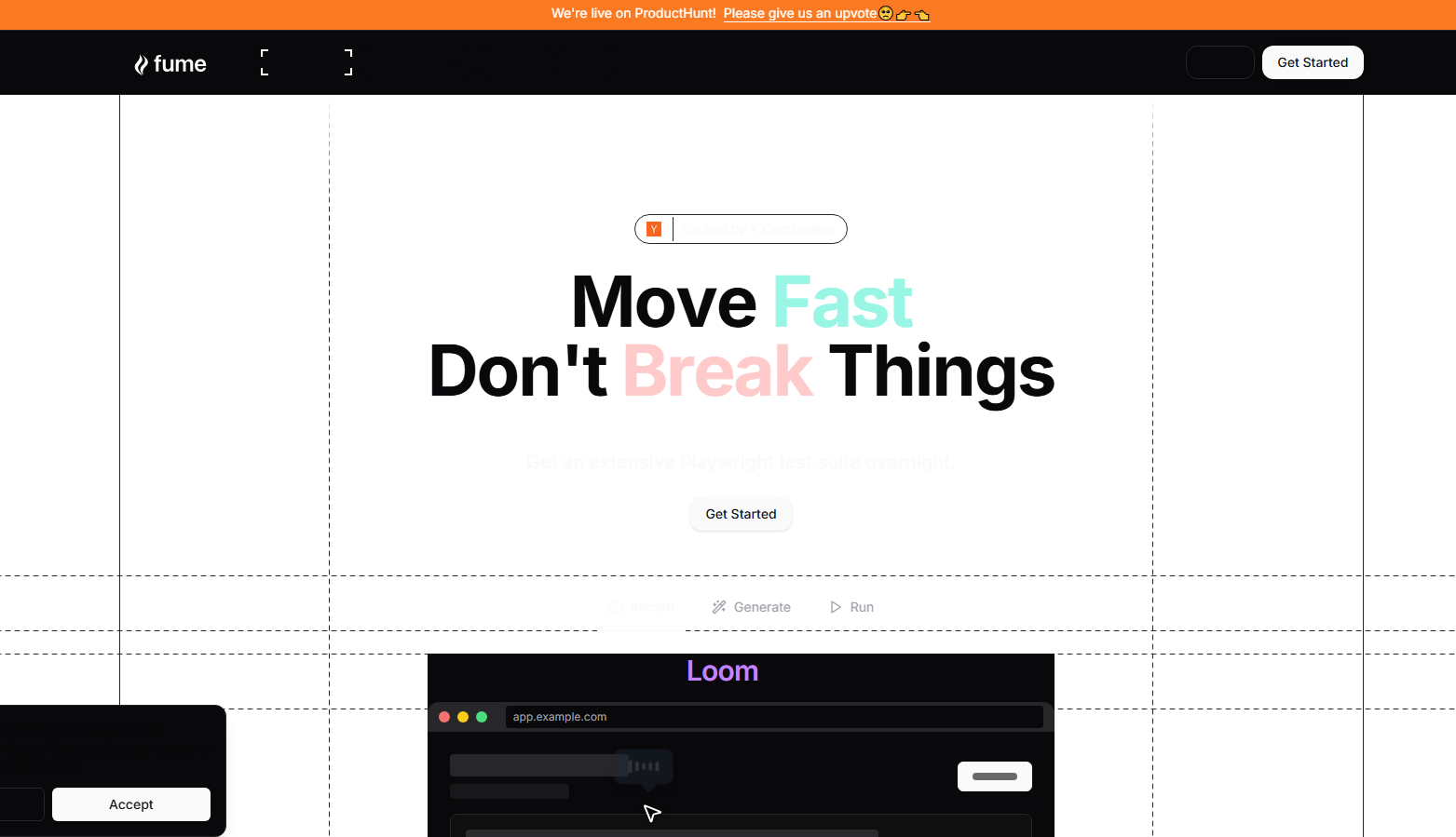
Fume
Fume is an AI testing tool that uses artificial intelligence technology to provide users with a worry-free AI testing experience. It can generate and maintain Playwright end-to-end browser tests based on users' recorded videos, greatly simplifying the testing process and improving testing efficiency.
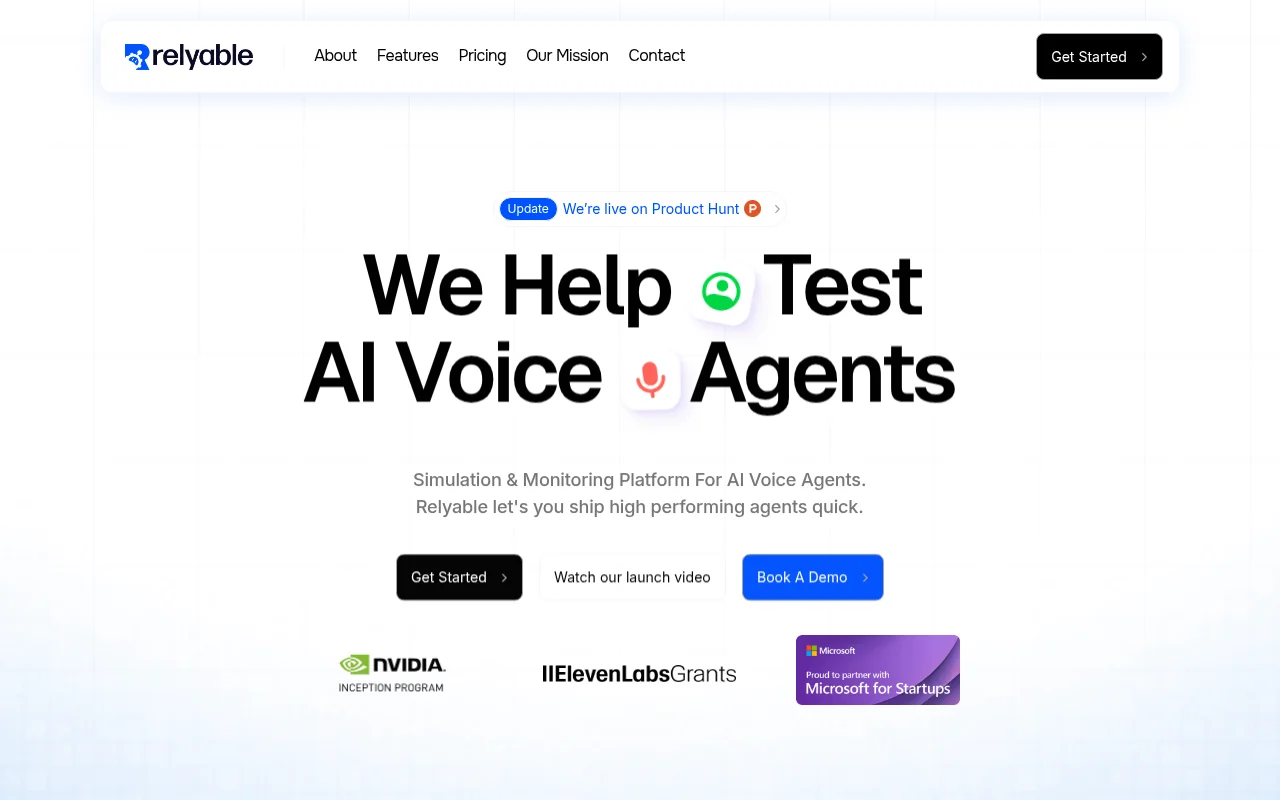
Relyable
Relyable is an automated AI agent testing and monitoring tool that helps users evaluate, optimize and monitor the performance of AI voice agents through simulation and intelligent analysis. It helps users quickly deploy production-ready AI agents and improve work efficiency.
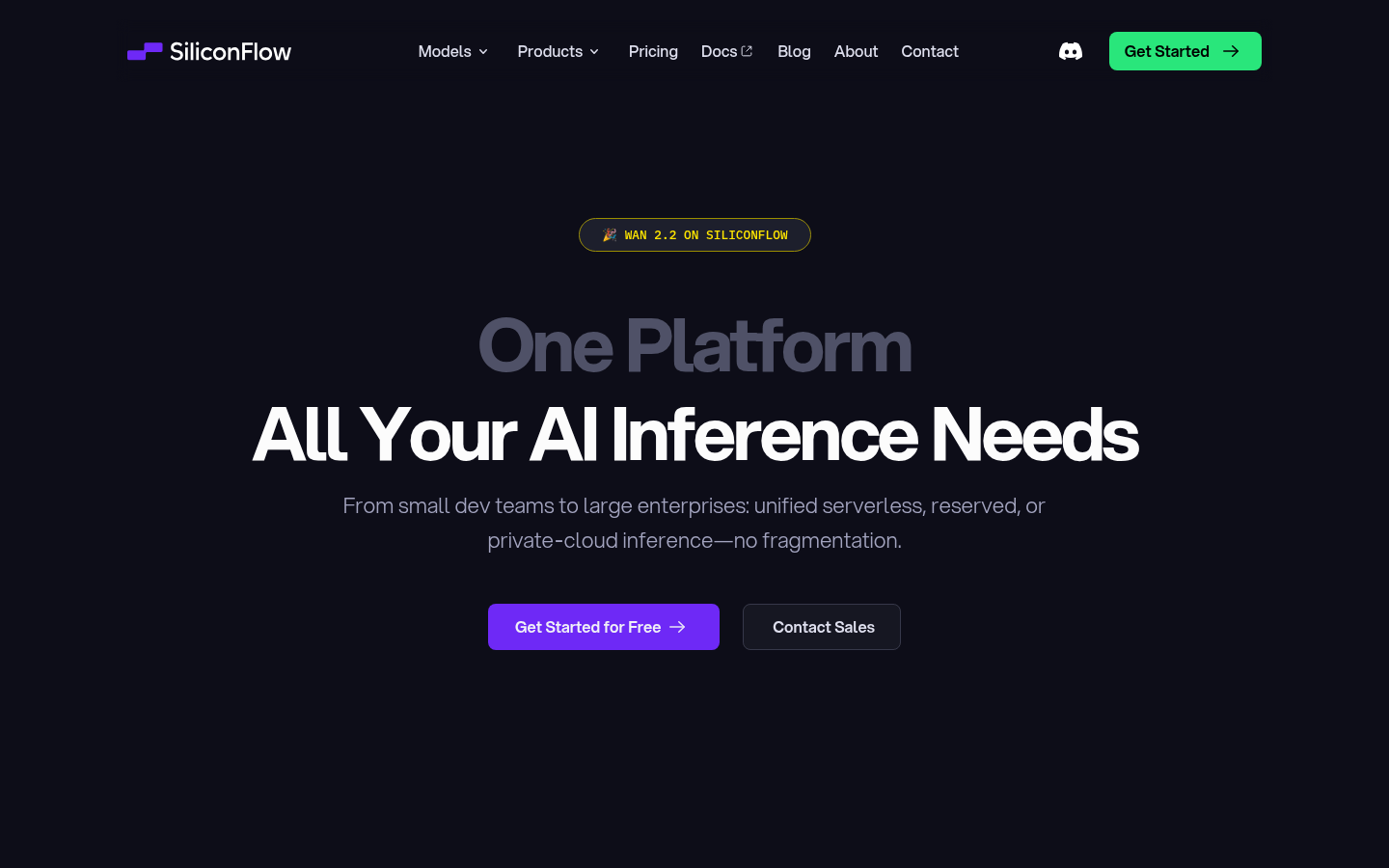
SiliconFlow
SiliconFlow is an AI infrastructure that provides developers with LLM deployment, AI model hosting, and inference APIs. It provides users with lower latency, higher throughput and predictable costs through an optimized stack.
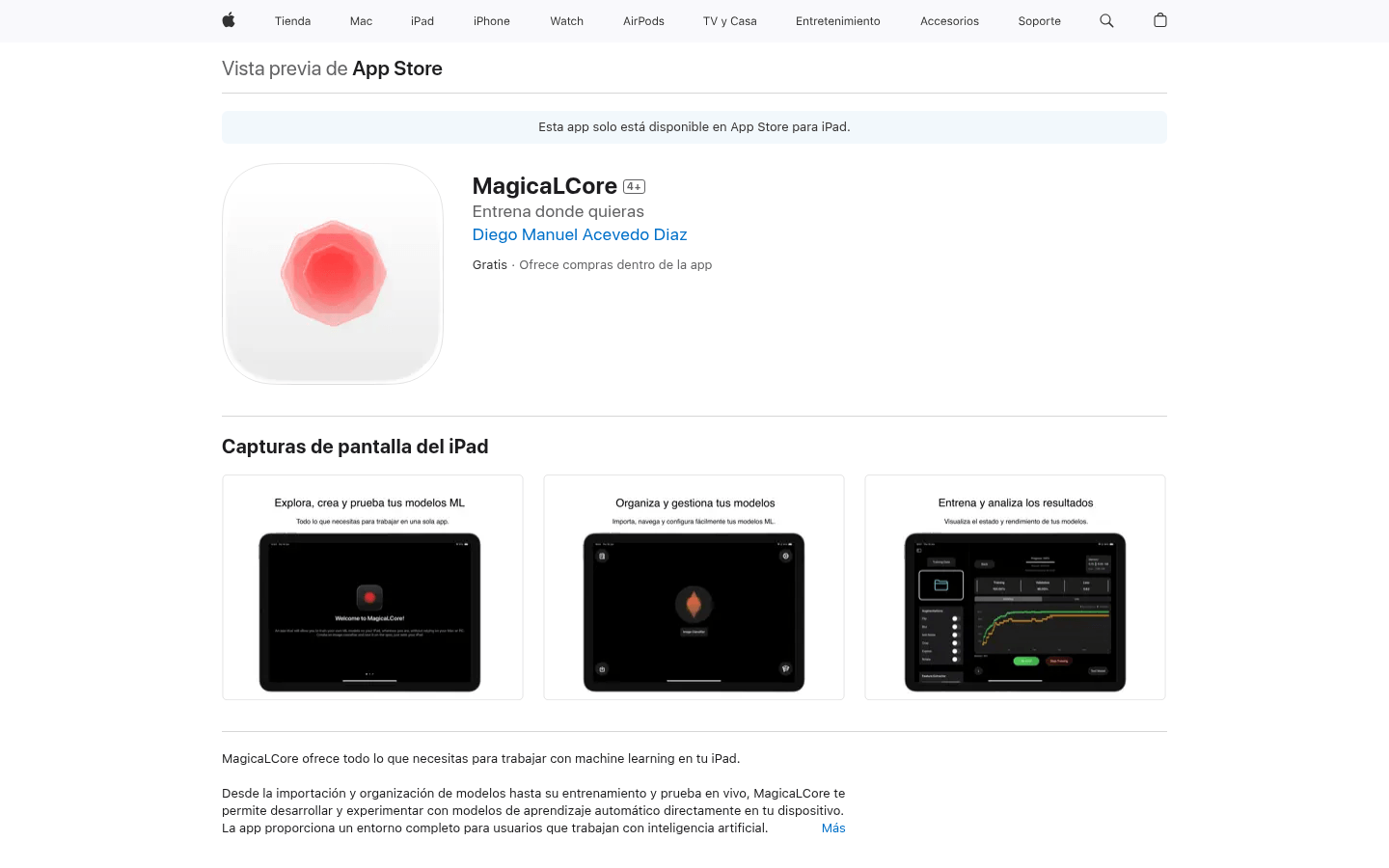
MagicaL Core
MagicaLCore is an application that can perform machine learning work on the iPad. Users can import, organize, train and test machine learning models in real time, and develop and experiment with models directly on the device.
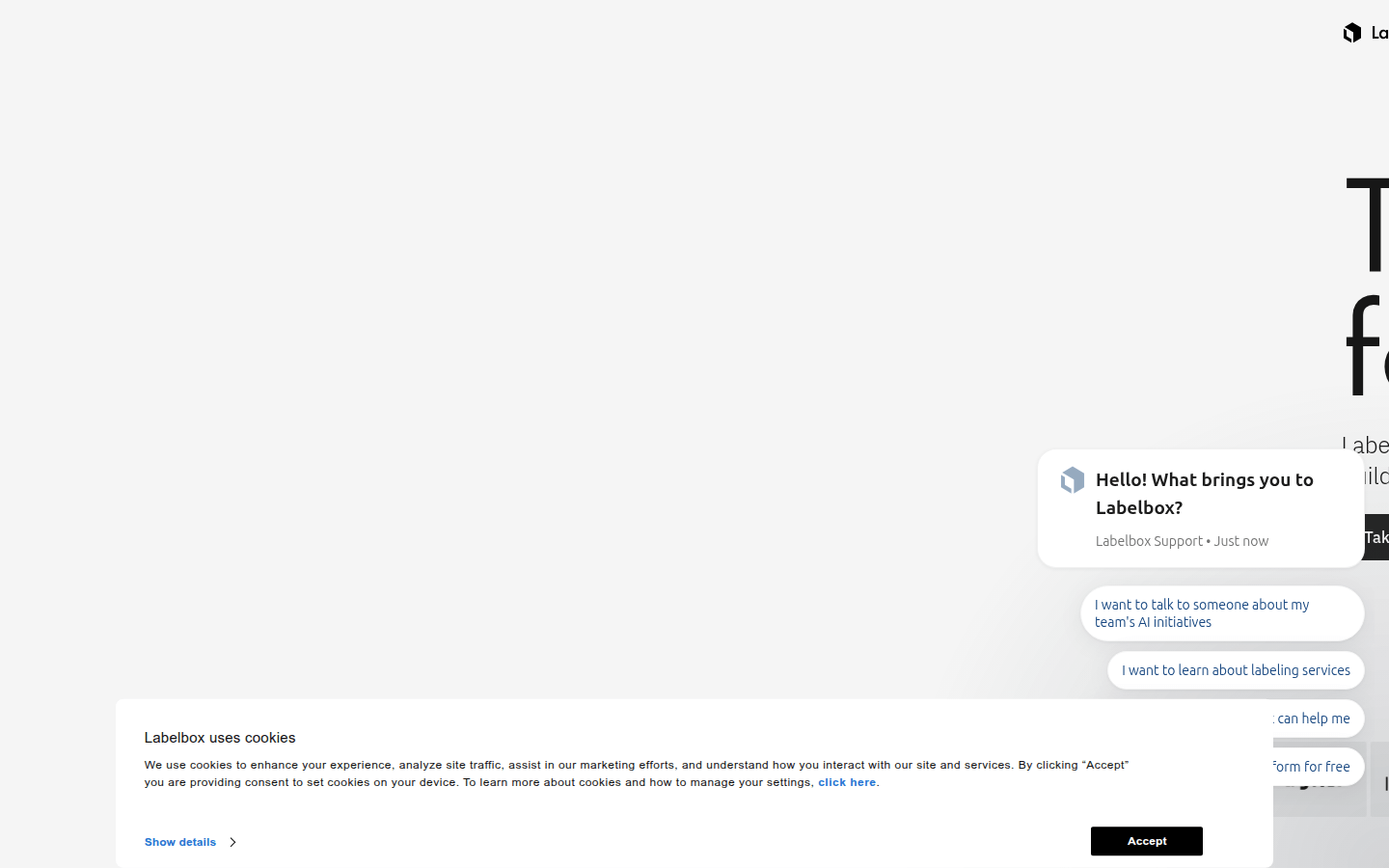
Labelbox
Labelbox is a data factory designed for AI teams, aiming to provide solutions for building, operating, and data labeling. Its main advantages include flexible annotation tools, automated data processes, rich data management functions, etc. Background information: Labelbox is committed to helping AI teams improve data annotation efficiency and model training quality, and is positioned to provide a comprehensive data management and annotation platform.

OpenTrain AI
OpenTrain AI is an AI training data marketplace that lets you directly hire vetted human data experts from around the world, using your favorite annotation software. Reduce costs, maintain control, and quickly build high-quality AI training data.

Genie Studio
Genie Studio is a one-stop development platform specially created by Zhiyuan Robot for embodied intelligence scenarios. It has full-link product capabilities including data collection, model training, simulation evaluation, and model reasoning. It provides developers with standardized solutions from ‘acquisition’ to ‘training’ to ‘testing’ to ‘push’, which greatly lowers the development threshold and improves development efficiency. The platform promotes the rapid development and application of embodied intelligence technology through efficient data collection, flexible model training, accurate simulation evaluation and seamless model reasoning. Genie Studio not only provides powerful tools, but also provides support for the large-scale implementation of embodied intelligence, accelerating the industry's leap to a new stage of standardization, platformization, and mass production.

Awesome-LLM-Post-training
Awesome-LLM-Post-training is a resource library focused on large language model (LLM) post-training methods. It provides an in-depth look at post-LLM training, including tutorials, surveys, and guides. This resource library is based on the paper "LLM Post-Training: A Deep Dive into Reasoning Large Language Models" and aims to help researchers and developers better understand and apply LLM post-training technology. This resource library is free and open and suitable for academic research and industrial applications.
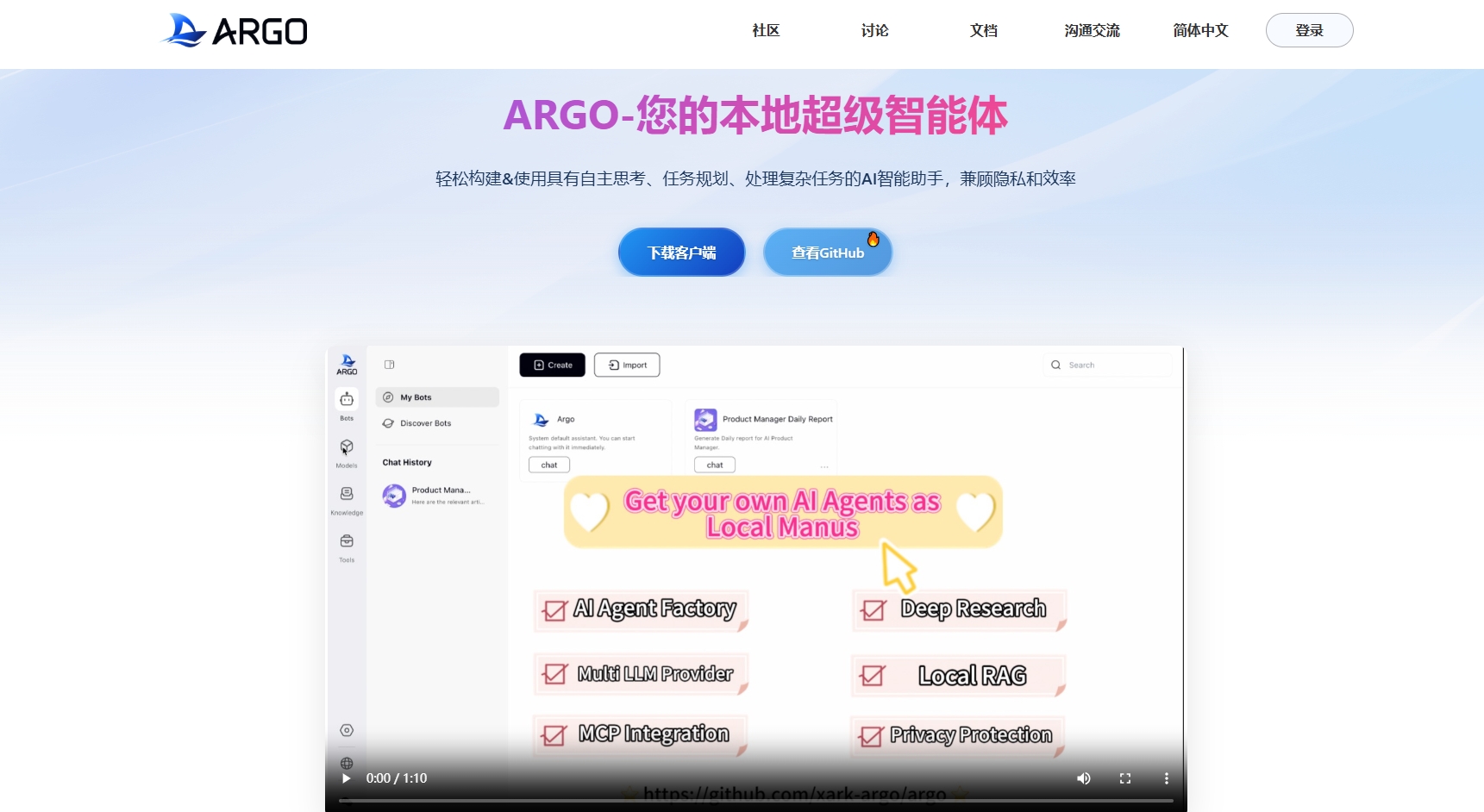
ARGO
ARGO is a multi-platform AI client designed to provide users with a powerful artificial intelligence assistant with the ability to think independently, task planning and complex task processing. Its main advantage is that it runs locally on the user's device, ensuring data privacy and security. It is suitable for user groups who need to manage and process tasks efficiently and supports multiple operating systems. Permanently open source and free.

Firecrawl LLMs.txt generator
LLMs.txt Generator is an online tool powered by Firecrawl designed to help users generate integrated text files for LLM training and inference from websites. It provides high-quality text data for training large language models by integrating web content, thereby improving model performance and accuracy. The main advantage of this tool is that it is simple and efficient to operate and can quickly generate the required text files. It is mainly aimed at developers and researchers who need large amounts of text data for model training, providing them with a convenient solution.

AI21-Jamba-Large-1.6
AI21-Jamba-Large-1.6 is a hybrid SSM-Transformer architecture base model developed by AI21 Labs, designed for long text processing and efficient reasoning. The model performs well in long text processing, reasoning speed and quality, supports multiple languages, and has strong instruction following capabilities. It is suitable for enterprise-level applications that need to process large amounts of text data, such as financial analysis, content generation, etc. The model is licensed under the Jamba Open Model License, which allows research and commercial use under the terms of the license.

MoBA
MoBA (Mixture of Block Attention) is an innovative attention mechanism designed for large language models in long text contexts. It enables efficient long sequence processing by dividing context into chunks and letting each query token learn to focus on the most relevant chunks. The main advantage of MoBA is its ability to seamlessly switch between full attention and sparse attention, which not only ensures performance but also improves computational efficiency. This technology is suitable for tasks that require processing long texts, such as document analysis, code generation, etc., and can significantly reduce computing costs while maintaining high performance of the model. The open source implementation of MoBA provides researchers and developers with powerful tools to advance the application of large language models in the field of long text processing.

OLMoE app
OLMoE is an open source language model application developed by Ai2 to provide researchers and developers with a completely open toolkit for conducting artificial intelligence experiments on devices. The app supports offline operation on iPhone and iPad, ensuring user data is completely private. It is built on an efficient OLMoE model and is optimized and quantized to maintain high performance when running on mobile devices. The open source nature of the application makes it an important foundation for research and development of a new generation of on-device artificial intelligence applications.

DeepSeek-R1-Distill-Qwen-32B
DeepSeek-R1-Distill-Qwen-32B is a high-performance language model developed by the DeepSeek team, based on the Qwen-2.5 series for distillation optimization. The model performs well on multiple benchmarks, especially on math, coding, and reasoning tasks. Its main advantages include efficient reasoning capabilities, powerful multi-language support, and open source features, which facilitate secondary development and application by researchers and developers. This model is suitable for scenarios that require high-performance text generation, such as intelligent customer service, content creation, and code assistance, and has broad application prospects.

ai-data-science-team
This product is an AI-driven data science team model designed to help users complete data science tasks faster. It automates and accelerates data science workflows through a series of professional data science agents (Agents), such as data cleaning, feature engineering, modeling, etc. The main advantage of this product is that it can significantly improve the efficiency of data science work and reduce manual intervention. It is suitable for enterprises and research institutions that need to quickly process and analyze large amounts of data. The product is currently in the Beta stage and is under active development, and there may be breakthrough changes. It adopts the MIT license, and users can use and contribute code for free on GitHub.
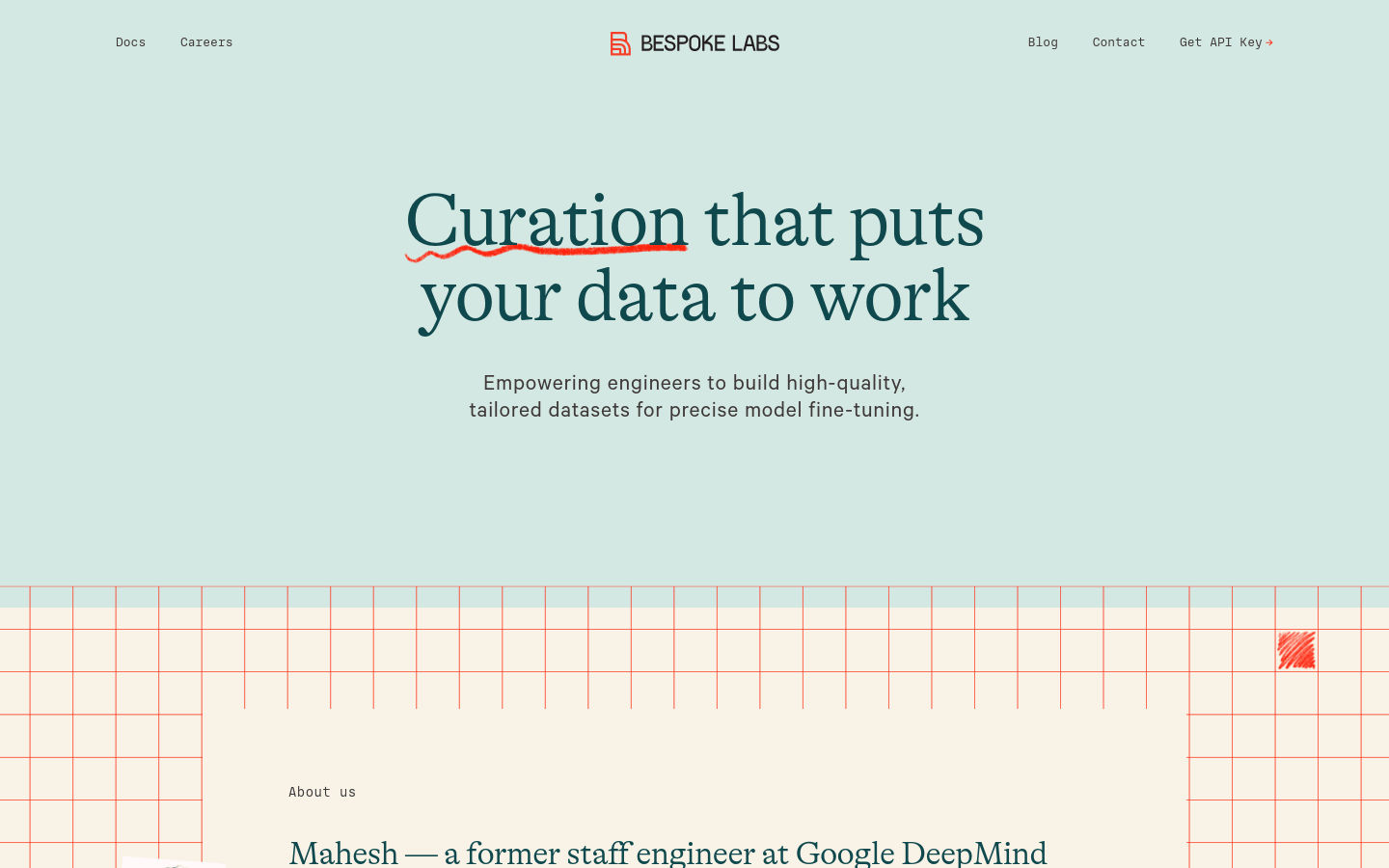
Bespoke Labs
Bespoke Labs focuses on providing high-quality customized data set services to support engineers in precise model fine-tuning. The company was co-founded by former Google DeepMind employees Mahesh and UT Austin's Alex to improve access to high-quality data, which is critical to advancing the field. The tools and platforms provided by Bespoke Labs, such as Minicheck, Evalchemy and Curator, are designed around the creation and management of datasets to improve data quality and model performance.